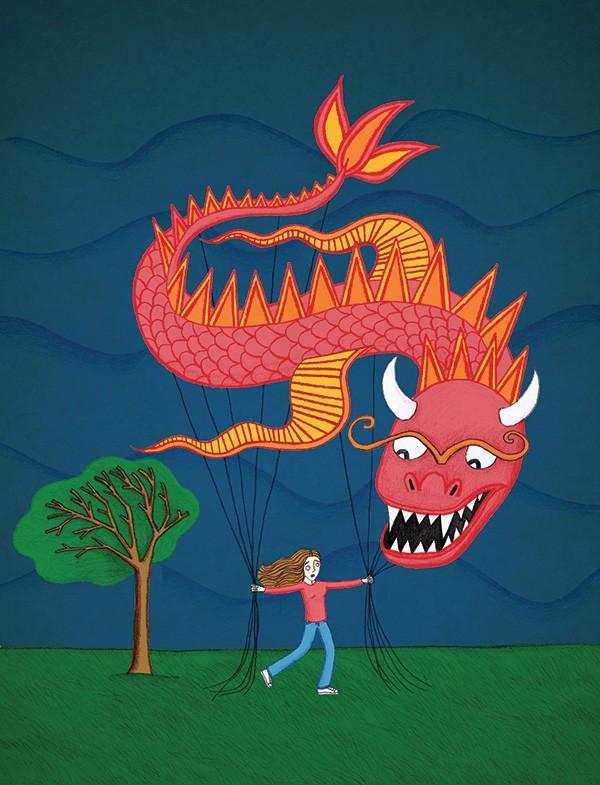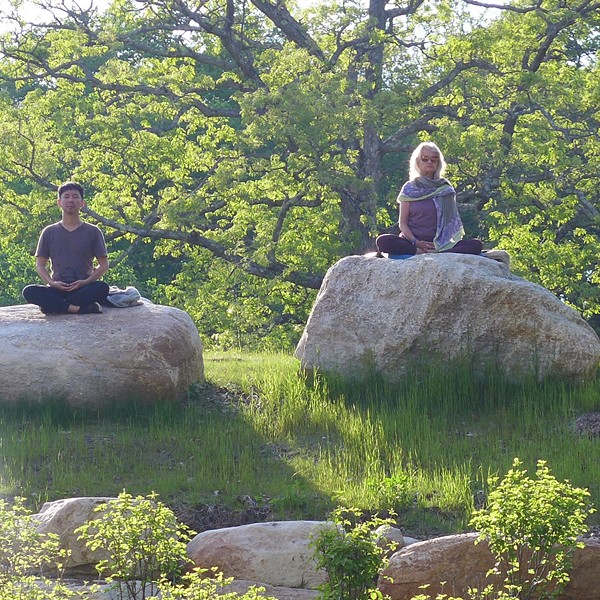What birthed the idea for your new, co-written book, Love Your Enemies?
Sharon Salzberg: At Menla, Bob and I often teach a workshop together called "Working with Your Enemies," in part because many people have a lot of suffering around inner and outer enemies. Inner enemies are things that we feel governed and overwhelmed by, like anger and fear, while outer enemies might be people whose actions have harmed us in some way. Maybe we get a little obsessed and give over too much of our life energy to those people or those feelings.
Robert Thurman: We have found it a tremendous release, a life-changing relief, for people to really deal with these issues—internalized anger, bitterness, resentment, sadness. We thought, why don't we do a book? Sharon has the tremendous resources of the Vipassana community and the mindfulness and loving-kindness skill sets that they develop. I have the resources from Shantideva, the great Buddhist master from India (the Dalai Lama is the special teacher of his tradition), and also the selflessness meditation of Tibet and what is called mind transformation yoga—seeing through the rigidity of ego and seeing ego resilience. So those things mesh nicely.
I'm interested in the idea put forth in the book that as a culture we're addicted to anger. How did we end up here?
SS: In Tibetan Buddhist teaching, they say that anger is what we pick up when we feel weak because we think it will make us strong. So if we look deep into a state of anger, we find a kind of helplessness. I think one thing American society is based on is this idea that we should be in control all the time. Of course, we're not. And so we feel perpetually helpless, and we can't bear it—we think it's wrong. So we pick up anger as the likeliest, most familiar means to not feel that anymore. Then we get caught in a vicious cycle.
RT: In the world right now, with all this propaganda in the news, one of the things they do is encourage people to be helpless. If you don't consume the products they're selling you, if you don't flip out over this and that, or fear this and that, you'll be miserable. All this false propaganda is encouraging people to maintain the worst habits. In the middle of that, we're working to reinforce the great teachings of Buddha and Jesus and Mohammad and Krishna and Lao-Tzu, all the great sages of humanity, with a really strong, well-worked-out technical psychology of the yogic and Buddhist masters. Modern ego psychology, although it's a little more relaxed about the notion of rigid identity, is still in its infancy compared to the great psychologies of the East. It's not a religious thing where we're just telling people to be a good boy or girl and be pious. We're giving people a skill set to be happy.
Can you give a nutshell version of the Buddhist take on anger and other "enemies"?
SS: The book is actually based on a Tibetan Buddhist model which has four kinds of enemies. The outer enemy is the most obvious one—people who've harmed us or who we fear will harm us. The inner enemies are things like jealousy and greed, and anger itself; it's not the feeling of them that's the problem but when we get overwhelmed by them and they guide our actions. Then the third enemy is the secret enemy, which is a sense of Self and Other, Us and Them, and not realizing that we live in an interconnected universe. We feel very much alone, at odds with everyone, and threatened by the great big Other out there. But it's a construct—it's not based on reality but on a kind of conditioning. The fourth enemy is the supersecret enemy, which Bob describes as self-loathing. I see it as almost this feeling of hopelessness. We try so hard to be happy, yet we do the very things that can cause so much pain and difficulty and confusion, and we start to spiral down.


















